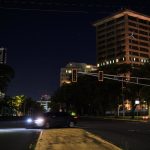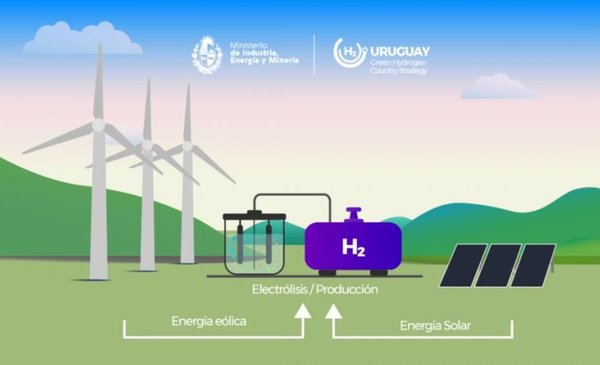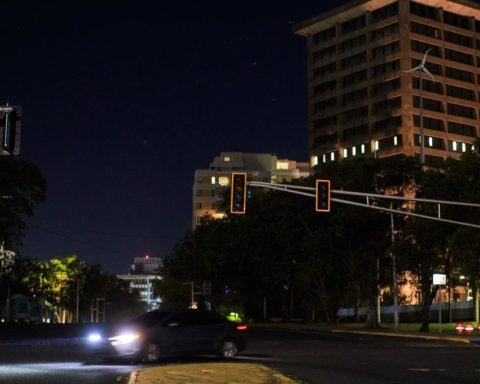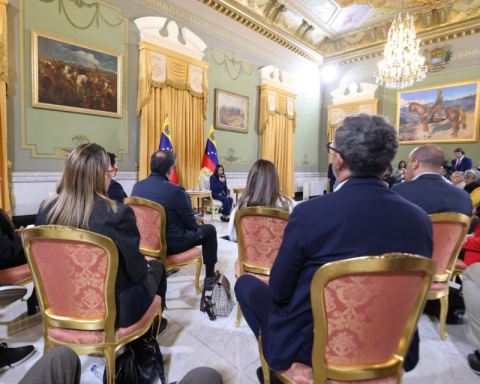Saint John Paul II, Pope at that time, arrived in Paraguay to canonize our first saint and his fellow martyrs. During his homily, he considered how “champions of faith” for demonstrating the “greatness of love for God and for the brothers…their unreserved dedication led them to martyrdom.”
He further stated that “the The incorruptible heart of Father Roque González de Santa Cruz constitutes an eloquent image of Christian love.capable of overcoming all human limits, even those of death”.
Father Roque was considered by John Paul II, said in his homily, not only a Paraguayan, but a son of Asunción, parish priest of the Cathedral, an exemplary Jesuit.
The Holy Father arrived in the country in the midst of a complicated situation, especially between the State and the Church.
San Roque and his life
Roque González de Santa Cruz was born in Asunción, Paraguay, in 1576. From a young age he showed great piety since at the age of 14 he led a procession through the forest in honor of the Eucharist.
He was ordained a priest at the age of just 22 and shortly after was appointed parish priest of the Asunción Cathedral by Bishop Martín Ignacio de Loyola.
He entered the Society of Jesus on May 9, 1609 and two years later he was appointed superior of the first Reduction of Paraguay, San Ignacio Guazú.
The desire to take the gospel to the whole world encouraged him to continue forward. On March 22, 1615, he founded a reduction in Itapúa (present-day Argentine city of Posadas) which soon moved to the other bank of the river, in what is today Encarnación, Paraguay. That is why he is recognized as the founder and patron of both cities. Two other Reductions founded by San Roque González are: Concepción (1619) and Candelaria (1627).
He was considered a great lover of the Virgin Mary. With her he conquered hearts for Christ. That’s why she called him “conqueror”. It is said that many times just by raising the picture of the image of Our Lady, the Indians admired the beauty of Mary and without saying a word they converted.
the martyrdom
On November 15, 1628, he celebrated Holy Mass near Caaró (today in Brazil), where a new reduction was planned. Over there He was assassinated by a cacique named Nezú. The assailants burned his body but, miraculously, the heart was intact.
To their great astonishment, the heart of the saint spoke to them, making them see what they had done and inviting them to repent. This heart, so full of divine love for all men, remained incorrupt. Five years later he was taken to Rome together with the instrument of martyrdom: a stone ax
The heart of San Roque and the ax were transferred to Paraguay in 1960 after a brief stay in Argentina. Now they are exposed in the Chapel of the Martyrs in the Cristo Rey school, Asunción, Paraguay.
In the same chapel there is a plaque with the names of 23 Jesuit missionaries martyred in the region.
the fellow martyrs
alonso rodriguez He was born in Zamora, Spain, on March 10, 1598. He completed his novitiate in Villagarcía de Campos, Valladolid, and was later sent to Paraguay.
He left Lisbon, Portugal, on an expedition led by Father Juan de Viana.
In 1626 he was sent to the missions of the Guaycurúes, opposite Asunción, on the other side of the Paraguay River. In 1628 he went to the Guaraní missions of Paraná.
He was appointed to accompany Roque González in the founding of the town of Todos los Santos de Caaró, on the eastern bank of the Uruguay River. There he died together with Roque on November 15, 1628.
Juan del CastilloBorn in Belmonte, Spain, on September 14, 1595. He entered as a Jesuit in 1614. In 1616 he went to the Indies. He was stationed in Buenos Aires, Córdoba and Chile. In 1626 he is assigned to the missions of the Uruguay River.
After the martyrdom of Fathers Roque González and Alfonso Rodríguez in the All Saints Reduction in El Caaró, Juan died on November 17, in the Asunción de Yjuhi reduction.
It’s news today: TSJE: Police on alert for 700 indigenous people with Molotov cocktails, sticks and rubble

















